The first State Government ‘Organic Haat’ opened in Rajarhat - GetBengal story

Organic Haat, Rajarhat
Here is some good grand news for health freaks of Bengal. The first Organic Haat has been opened by the Agricultural Marketing Department of the Government of West Bengal, very close to the Biswa Bangla Gate in Jatragachi. It aims to give the people of Kolkata and its neighbourhood access to healthy food items, that have become a necessity of our times when pollution and pesticides are thoroughly affecting the crops and vegetables. The focus of people nowadays is on living a healthy life. Individuals are more careful than ever about what to eat and where to procure the raw materials from. This is why, people are taking up organic habits and slowly rejecting the hybrid farming alternatives and other such methods which affect the produce and ultimately affect the food that we consume.
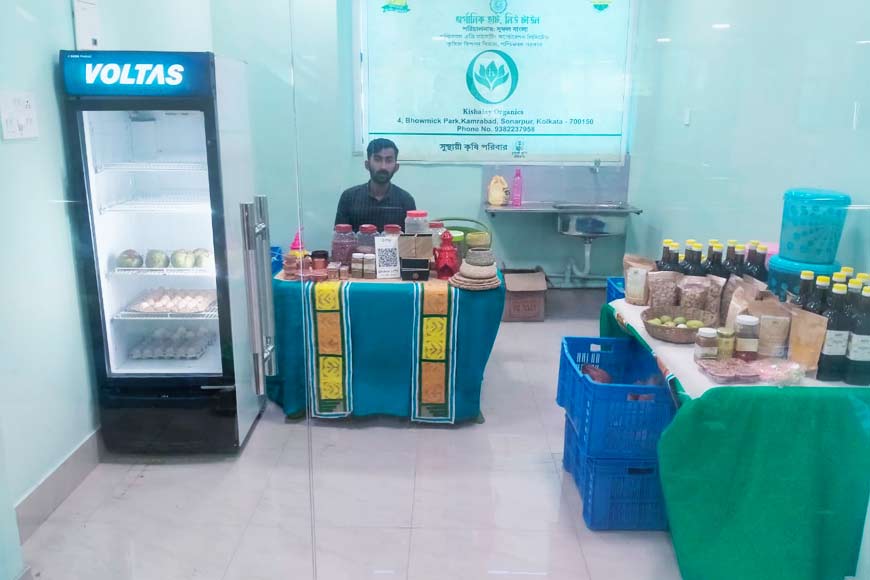
The Organic Haat building is around 11,000 sqm and has 7 floors. On the ground floor there is an open market in which different types of organic vegetables and herbs or “shaak” are available. There are also different fruits available on that floor. The elevator will lead you to the 2nd and 3rd floors where there are different types of organic rice, millet, milk, ghee, honey, jam, pickle, and other such food items. All these products are organically produced by the farmers and they ensure that no chemicals or pesticides have been used in growing them. Pesticides and chemicals have innumerable health hazards which can affect the human body negatively.
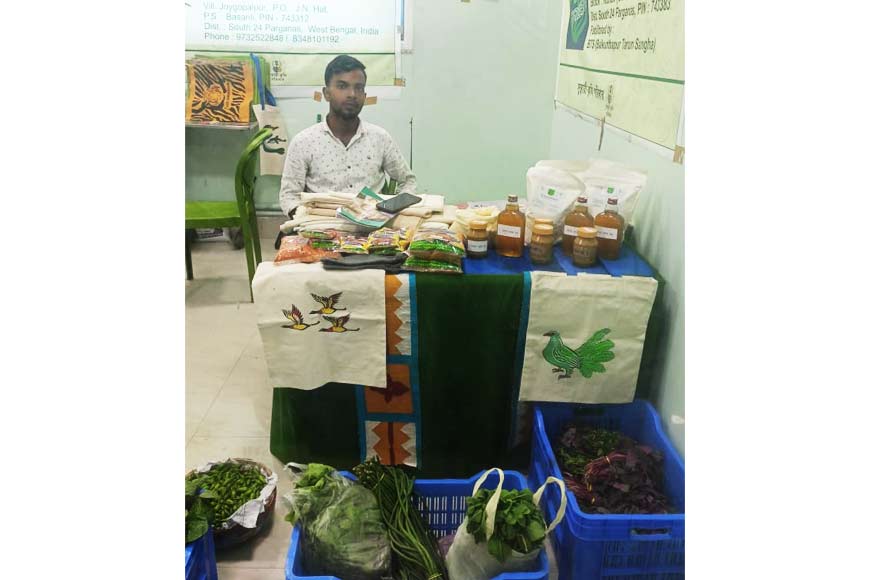
Pesticides and chemicals can have various effects on farm produce. Of course, there are some positive effects such as they help in controlling pests, they can increase agricultural productivity and reduce losses by preventing crop damage. But the negative effects are too harmful to be neglected. Pesticides can leave residues on fruits, vegetables, and grains. If not properly washed or cooked, these residues can pose health risks to consumers. Runoff from farms can carry pesticides into nearby water bodies, leading to water pollution. This can harm aquatic life and disrupt entire ecosystems. Continuous use of pesticides can degrade soil quality, affecting its fertility and long-term productivity. It can kill beneficial organisms like earthworms and microbes crucial for soil health. Pesticides don’t discriminate between harmful pests and beneficial insects. They can harm pollinators like bees and natural predators of pests, disrupting local ecosystems and biodiversity. Over time, pests can develop resistance to pesticides paving the way for stronger chemicals. These are not all as there are more problems that keep adding to the list.
Those who are selling their produce at the Organic Haat come from different places such as the Sundarbans, Jangal Mahal in Jhargram and other regions of Bengal. According to the authorities, this initiative has been taken to ensure that the customers get organic farm produce for a fair and reasonable price and also ensure that the farmers can get a fair price for their organic products. Biplab Das of Kishalay Organics which is under the Kishalay Foundation who has a stall within the premises said, “The Haat has 4 floors in use now in which there are 16 rooms. 32 entities are there and 2 entities have been accommodated in each room. There are almost 8 to 10 Farmer Producer Companies (FTC) from all over Bengal, such as Jangal Mahal Uddyog, Purulia, Bankura, Sundarbans, Barasat, 24 Parganas etc. There are also some individuals who are not under such organised companies but follow the organic methods of producing crops sustainably. They tie up with some others and display their products at the Organic Haat. Mainly grocery items such as rice, spices, mustard oil, millets, eggs, chicken, and vegetables are sold as part of the food items.”
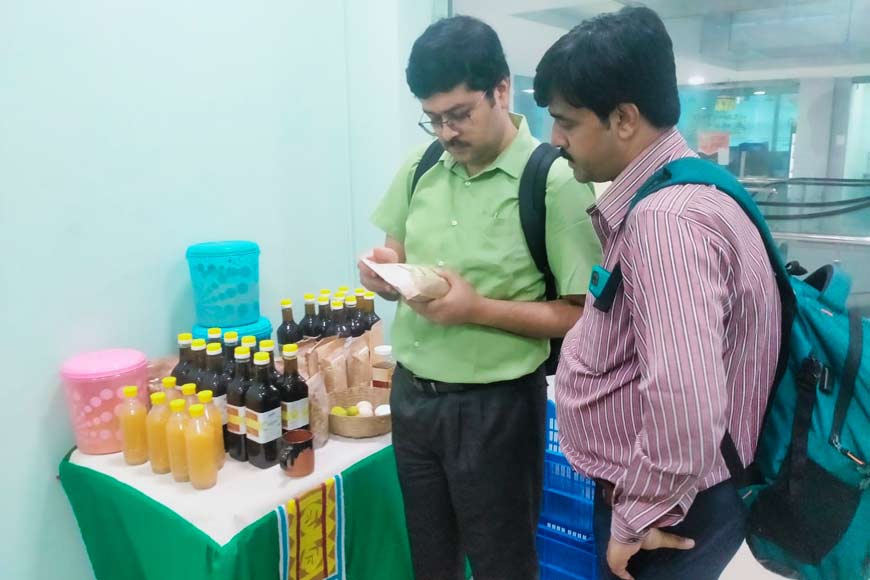
These farmers were in some way or the other linked to the Susthai Krishi Programme and because of that their farms have been visited by officials, their products and ways have been examined and a clear review was provided which proved that they followed the organic methods. Many verifications were done before allowing them to be part of this Organic Haat. Such organic produce gets certifications, but the international certifications are very costly, ordinary small organic farmers cannot renew it every year as it requires a large fee. But these small farmers are more needy than the bigger ones. So many of these farmers have got the certification from The Peer Group Certification programme by the Government of India as it does not require a large fee and ensures the farmers are not selling ‘fake organic’ produce.
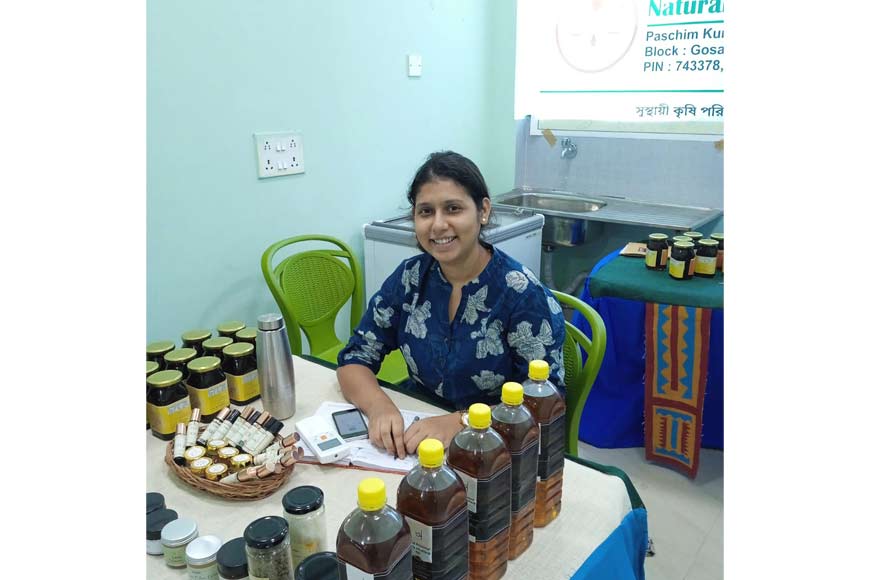
A lab facility is also in progress. The State-owned Oil Granding Laboratory and Cereal, Pulses and Oilseeds Grading and Sampling Laboratory will be opened where random testing will be done and if in any way the quality of the product is compromised then the farmers will be warned and if this continues further then they will be discontinued. More such organic haats under Sufal Bangla will be opened around Kolkata once this one proves to be quite successful. It started operating properly in November and the footfall is also increasing. Other than food items many cottage industry craft items are also kept especially keeping in mind the festivities that are coming their way.
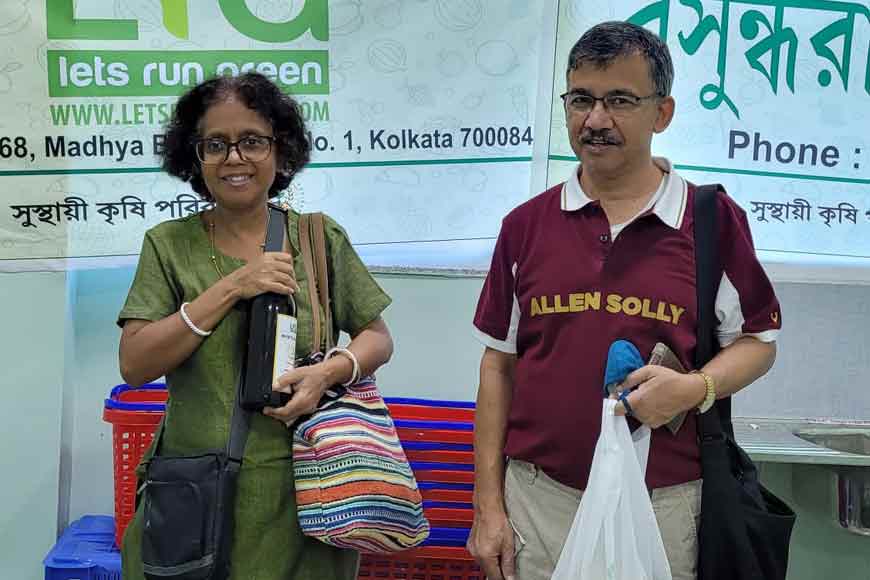
It is often said that organic products are more expensive than non-organic ones but Biplab Das says otherwise. “The Organic Haat is a government initiative and their aim is to provide customers with organic products for a reasonable price. Every day a product list is circulated by Sufal Bangla and the cost might vary a bit from it but there will not be a large disparity in the prices as there is a guideline for the products in which it provides a price ceiling. The customers can directly visit the farms in which these are produced and it will help them understand how these things are made.”











